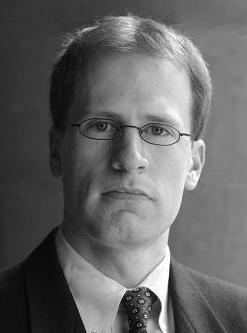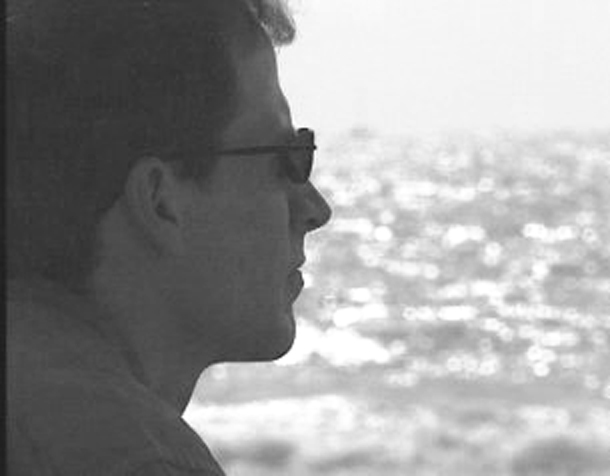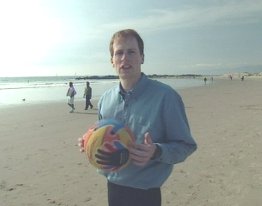Selected
writings PHILOSOPHY
OF SCIENCE
Anthropic
Bias: Observation Selection Effects in Science and Philosophy
(Academic/Nick's
Pick)
This book presents the first mathematically explicit theory of observation selection
effects - an important kind of bias that infests many branches of science and
philosophy. But we can tame them! There are implications for cosmology, evolutionary
biology, the interpretation of quantum mechanics, the Doomsday argument, the Sleeping
Beauty problem, the search for extraterrestrial life, the question of whether
God exists, and traffic planning. There is not too much math and the results are
explained verbally also. I've negotiated the right to make five sample chapters
available online. [Routledge, New York, 2002]
Self-Locating
Belief in Big Worlds: Cosmology's Missing Link to Observation (Academic/Nick's
Pick) NEW
Current cosmological theories say that the world is so big that all possible observations
are in fact made. But then, how can we test them? What could count as negative
evidence? - To answer that, we need to take into account observation selection
effects. [Penultimate draft of paper Journal of Philosophy, 2002, Vol.
99, No. 12.]. [pdf
| doc]
 | Cars
In the Other Lane Really Do Go Faster (Popular/Nick's
Pick)
When driving on the motorway, have you ever wondered about (and cursed) the fact
that cars in the other lane seem to be getting ahead faster than you? You might
be inclined to account for this by invoking Murphy's Law ("If anything can go
wrong, it will", discovered by Edward A. Murphy, Jr, in 1949). But there is a
deeper explanation, based on observational selection effects... [PLUS,
2001, No. 17] |
The
Doomsday Argument, Adam & Eve, UN++, and Quantum Joe
(Academic)
On the Doomsday argument and related paradoxes. [Penultimate draft of paper in
Synthese, 2001, Vol. 127, No. 3, pp. 359-387]. [pdf
| doc]
The
Super-Newcomb Problem (Academic)
A puzzling variant of the Newcomb puzzle. [Analysis, 2001, Vol. 61, No.
4., pp. 309-310. [pdf |
doc]
A
Primer on the Doomsday argument (Popular)
The Doomsday argument purports to prove, from basic probability theory and a few
seemingly innocuous empirical premisses, that the risk that our species will go
extinct soon is much greater than previously thought. (My view is that the Doomsday
argument is inconclusive - although not for any trivial reason. In my
book, I argue that a theory of observation selection effects is needed to
truly explain what goes wrong.) [Colloquia
Manilana (PDCIS), 1999, Vol. 7; reprinted in The Actuary, March 2001,
and in ephilosopher.com, 2001]
The
Doomsday argument and the Self-Indication Assumption: Reply to Olum
(Academic)
NEW
Argues against Olum and the Self-Indication
Assumption. Co-authored with Milan M. Cirkovic. [Penultimate draft forthcoming
in Philosophilcal Quarterly]
[pdf]
The
Mysteries of Self-Locating Belief and Anthropic Reasoning (Academic)
NEW
Summary of some of the difficulties that a theory of observation selection effects
faces and a solution sketch. [Harvard Review of Philosophy, forthcoming]
[pdf]
Beyond
the Doomsday Argument: Reply to Sowers and Further Remarks (Academic)
NEW
Argues against George Sower's refutation
of the doomsday argument, and outlines what I think is the real flaw.
The
Doomsday Argument is Alive and Kicking
(Academic)
Have Korb and Oliver refuted the doomsday argument? No. [Penultimate draft of
a paper in Mind, 1999, Vol.108, No.431, pp. 539-550]
Observer-relative
chances in anthropic reasoning?
(Academic)
A paradoxical thought experiment
[Penultimate draft of paper in Erkenntnis, 2000, Vol. 52, pp. 93-108]
Cosmological
Constant and the Final Anthropic Hypothesis (Academic)
Examines the implications of recent evidence for a cosmological constant for the
prospects of indefinite information processing in the multiverse. Co-authored
with Milan M. Cirkovic; several formats available at the physics
preprints archive. [Astrophysics and Space Science, 2000, Vol. 279,
No. 4, pp. 675-687]
(For
many more papers related to the anthropic reasoning, by me and others, please
visit anthropic-principle.com)
ETHICS
Astronomical
Waste: The Opportunity Cost of Delayed Technological Development
(Academic)
NEW Suns
are illuminating and heating empty rooms, unused energy is being flushed down
black holes, and our great common endowment of negentropy is being irreversibly
degraded into entropy on a cosmic scale. These are resources that an advanced
civilization could have used to create value-structures, such as sentient beings
living worthwhile lives...
[Penultimate draft of paper forthcoming in Utilitas] [html
| pdf]
Desire,
Time, and Ethical Weight (Academic)
Discusses
the role of time in desire-satisfactionism. E.g. is it more important that a desire
gets satisfied if it has been held longer? Do past desires count? (I think this
paper will need some serious revising.) [pdf]
Human
Genetic Enhancements: A Transhumanist Perspective (Academic)
NEW
A transhumanist ethical framework
for public policy regarding genetic enhancements, particularly human germ-line
genetic engineering [Penultimate
draft of paper forthcoming in The Journal of Value Inquirery[
html | pdf] [Note:
newest version only in pdf.]
Transhumanist
Ethics (Academic/Popular)
Proposes a transhumanist axiology and applies
it to human germ-line engineering (the latter bit is mostly taken from the foregoing
paper). [pdf]
TRANSHUMANISM
AND THE FUTURE
The
World in 2050 (Popular)
Features an imaginary dialogue, set in 2050 and broadcast in virtual reality,
in which three polymaths debate various issues that their society is facing.
The
Transhumanist FAQ (Popular/Nick's
Pick) 50+
persons collaborated with me in attempting to lay the foundations for a transhumanist
worldview [also in German,
Hungarian,
Dutch,
and Italian].
Existential
Risks: Analyzing Human Extinction Scenarios and Related Hazards
(Popular/Academic/Nick's
Pick) Existential
risks are ways in which we could screw up badly and permanently. Interestingly,
there is more scholarly work on the life-habits of the dung fly than on existential
risk. In other words, an opportunity to make a contribution, perhaps. Of course,
the point is not to welter in doom and gloom but to get a better understanding
of where the main pitfalls are so we can develop workable strategies for not falling
into them. [also in pdf-format;
Journal
of Evolution and Technology, 2002, vol. 9]
How
long before superintelligence?
(Academic)
This short paper, now a few years old, presents the case for thinking that we
might well have superhuman artificial intelligence within the first third of this
century. [Updated version of the original in Int. Jour. of Future Studies,
1998, vol. 2]
When
Machines Outsmart Humans (Popular)
This slightly more
recent article briefly reviews the argument set out in the previous one, and also
explains four immediate consequences of human-level machine intelligence.
[Forthcoming in Futures, 2003, as the target paper of a
symposium, toghether with a reply to five other papers that comment on it.]
Are
You Living in a Computer Simulation?
(Popular/Academic/Nick's
Pick)
NEW
This paper argues that at least one of the
following propositions is true: (1) the human species is very likely to go extinct
before reaching the posthuman stage; (2) any posthuman civilization is extremely
unlikely to run significant number of simulations or (variations) of their evolutionary
history; (3) we are almost certainly living in a computer simulation. It follows
that the naïve transhumanist dogma that there is a significant chance that we
will one day become posthumans who run ancestor-simulations is false, unless we
are currently living in a simulation. A number of other consequences of this result
are also discussed. [Penultimate draft
of paper in Philosophical Quarterly, 2003, Vol. 53, No. 211, pp. 243-255].
[pdf | html]
HALF-BAKED (working-papers
at various stages of incompletion)
The
Future of Human Evolution
(Popular)
Evolution doesn't always go in the direction
of what we would regard as more valuable life-forms. What lies in store for our
species? [pdf | html
| doc]
Ethics
for Intelligent Machines: A Proposal
(Academic/Popular)
Some
guidelines [pdf |
html | doc]
Transhumanist
Values (Academic/Popular)
Values, perhaps, are fluffy cloudy things.
This paper attempts to sketch some transhumanist values.
What
is a singleton? (Popular)
Concept describing a kind of social structure.
SOME ONLINE INTERVIEWS
Nanotechnology
Now. (Popular)
On nanotechnology, progress, and transhumanism.
(December 2001).
Nanomagazine.com.
(Popular)
On AI and nanotechnology. (October 2001).
Resonance
Publications. (Popular)
On philosophy, transhumanism, education,
and government. On nanotechnology, progress, and transhumanism. (March 2000).
Heart
of the Matter, BBC1 Television.
(Popular)
Script: "Against Aging". (March
2000).
POETRY
Synkrotron
(Popular)
The final fruit and crowning
completion of my earlier efforts as a practicing poet. All in Swedish! As a bonus,
your browser probably won't display the last three letters of the Swedish alphabet.
I've quit writing poetry; "for more there is no need."
MISCELLANEOUS & OLD HAT
Human
Reproductive Cloning from the Perspective of the Future. (Popular)
NEW.
Boy have I been asked the cloning question
waaay too many times! But here is an updated statement of 27 Dec 2002. (An older
version can be found here.)
The
Epistemological Mystique of Self-Locating Belief
(Academic)
Intriguing, eh?
What
is transhumanism? (Popular)
An older introduction but
with a new postscript. [Earlier version in Sawaal, August 2000; reprinted
in Doctor Tandy's First Guide to Life Extension and Transhumanity, 2001,
Ria University Press, Palo Alto]
Predictions
from Philosophy? (Popular)
How analytical philosophers could help forecast our technological future. Argues
that academic philosophers can do something useful if they become scientific generalists,
polymaths, with a thorough grounding in several sciences. Also contains specific
remarks about the Fermi paradox, superintelligence,
sociological attractors and other things. [Colloquia
Manilana (PDCIS), 2000, Vol. 7]
What
to say to the Skeptic
(Academic)
A discussion, in dialog form,
of the position of the radical skeptic, who doubts that any inductive knowledge
is possible. Very early work.
Cortical
Integration
(Academic)
Possible Solutions to the
Binding and Linking Problems in Perception, Reasoning and Long Term Memory. (My
MSc-thesis in computational neuroscience on the problem of finding neurologically
plausible dynamical binding mechanisms in the brain for producing and storing
structured representations.) [Consciousness and Cognition, 2000, Vol. 9,
No. 2, pp. 39S-40S]
Mailing
list postings. (Popular)
I post occasionally to some lists.
I've edited and html-ized one particularly long thread on the extropians list
from a few years ago, on the topic of how to avoid nanotechnological disaster,
here.
Understanding
Quine's Theses of Indeterminacy
(Academic)
(My MA-thesis in philosophy.
Boring.
Fine-Tuning
Arguments in Cosmology (Academic)
Our universe appears to be fine-tuned for intelligent life. There are several
physical constants such that had they been even a teeny, weeny bit different than
they are, then life could not have existed. Why is the world like that? Some people
think this improbable coincidence points to the existence Designer. Others shrug
it off as one of those brute facts that just happen to obtain. Others still suggest
that a multiverse theory (where our universe is just one out of very many physically
real universes) can explain the phenomenon. Nick investigates. [Has become chapter
2 of the book] [pdf]
Observational
Selection Effects and Probability
(Academic)
Doctoral dissertation, which presented the first mathematically explicit "observation
selection theory", with implications in cosmology, evolutionary biology, the interpretation
of quantum mechanics, the search for extraterrestrial life, to the question of
whether God exists, and for traffic planning. It has now been transfigured into
a book.



